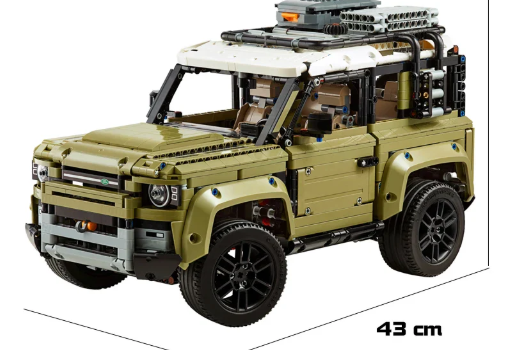 Business
Business
How a Toy Car for Kids Can Help Boost Early Motor Skills
- by amelismith
Toy cars are more than just playthings; they are powerful tools that contribute significantly to a child’s development. Engaging with toy cars can enhance both fine and gross motor skills, foster cognitive abilities, and promote social interaction. This article explores how a toy car for kids can help boost early motor skills, laying a foundation for physical coordination and cognitive growth.
Fine Motor Skills Development
Manipulating toy cars requires children to use their hands and fingers in precise ways, which is essential for fine motor development. Activities like pushing, pulling, and steering toy cars help strengthen hand muscles and improve dexterity. As children grasp and maneuver these toys, they enhance their grip strength and finger coordination—skills that are crucial for tasks such as writing, drawing, and other daily activities.
Gross Motor Skills Enhancement
Beyond fine motor skills, toy cars also aid in the development of gross motor skills. When children engage in activities like running alongside a ride-on car or navigating a track, they practice balance, coordination, and spatial awareness. These physical activities contribute to overall body coordination and strength, which are vital for other activities like sports, walking, and even climbing stairs.
Cognitive Skill Advancement
Playing with toy cars also stimulates cognitive development by encouraging problem-solving and spatial reasoning. Children learn about cause and effect as they observe how cars move and interact with their environment. Building tracks, creating obstacle courses, and experimenting with different ways to make the cars go faster or slower require planning and an understanding of spatial relationships. These activities enhance their cognitive abilities, laying the groundwork for more complex problem-solving and learning.
Social Skills and Emotional Growth
Toy cars also play a significant role in developing social and emotional skills. When children play with others, they learn to share, take turns, and collaborate. Engaging in imaginative play scenarios with toy cars fosters creativity and empathy as children create stories and roles, enhancing their emotional intelligence. These interactions promote a sense of cooperation and understanding, teaching kids the value of teamwork and empathy for others.
Choosing the Right Toy Car for Development
Selecting the right toy car is crucial to maximizing its developmental benefits. For younger children, simple push cars or ride-on toys are ideal as they promote basic motor skills. These types of toys encourage crawling, walking, and pushing, which are important steps in physical development. As children grow, more complex toys like remote-controlled cars or vehicles with interactive features provide additional challenges, helping to further develop motor skills and cognitive abilities. It’s essential to choose age-appropriate toys that are both engaging and safe, ensuring a positive play experience.
Conclusion
In conclusion, a toy car for kids is not just a source of entertainment; it is a valuable tool for developing essential motor skills. Through interaction with toy cars, children can enhance their fine and gross motor skills, cognitive abilities, and social interactions. By selecting the right toys and encouraging active play, parents and caregivers can support their child’s development in a fun and engaging way. So, the next time your child zooms around with their favorite toy car, complete with realistic features like a car hood LED strip, know that they’re not just having fun—they’re building skills that will benefit them for years to come.









